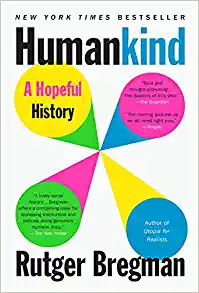 Every ten years or so I read a book that shifts my belief system. Humankind: A Hopeful History by Rutger Bregman is that book. It joins Ishmael by Daniel Quinn and Zen and the Art of Motorcycle Maintenance by Robert M. Pirsig on my list of top-ten mind-altering books.
Every ten years or so I read a book that shifts my belief system. Humankind: A Hopeful History by Rutger Bregman is that book. It joins Ishmael by Daniel Quinn and Zen and the Art of Motorcycle Maintenance by Robert M. Pirsig on my list of top-ten mind-altering books.
Honestly, if you’re at all upset by the state of affairs in the world today, Humankind will give you hope.
What I liked about Humankind
After a short prologue showcasing human resiliency during World War II, Humankind begins:
This is a book about a radical idea.
An idea that’s long been known to make rulers nervous. An idea denied by religions and ideologies, ignored by the news media and erased from the annals of world history.
At the same time, it’s an idea that’s legitimised by virtually every branch of science. One that’s corroborated by evolution and confirmed by everyday life. An idea so intrinsic to human nature that it goes unnoticed and gets overlooked.
If only we had the courage to take it more seriously, it’s an idea that might just start a revolution. Turn society on its head. Because once you grasp what it really means, it’s nothing less than a mind-bending drug that ensures you’ll never look at the world the same again.
So what is this radical idea?
That most people, deep down, are pretty decent.
Humankind: A Hopeful History includes research, facts, and anecdotes to back up its major premise. It debunks our current beliefs about people while being entertaining.
When Bregman started writing Humankind, he wondered if there was a real life situation similar to Lord of the Flies by William Golding. He searched the internet and discovered there was. In 1966, six boys ages thirteen to sixteen were stranded on a desert island until they were rescued 18 months later.
But, contrary to Golding’s novel, these boys were physically, mentally, and emotionally healthy. They could have lived peacefully together on the island for the rest of their lives.
Bregman also addresses the Stanford Prison Experiment where college students taking on the roll of prison guards abused their charges (I studied this as a psychology major), the brutal murder of Catherine Susan Genovese (the New Yorker who cried for help but was ignored), the chaos in the Louisiana Superdome during Hurricane Katrina, and even the brutality of war. He explains the reality of these events with factual evidence that will surprise you.
Bregman also includes descriptions of current societal changes which embrace humanity’s goodness. And he adds his ten rules to live by.
Issues I had with the book
I listened to the audiobook version narrated by Rutger Bregman and Thomas Judd before reading the book. Bregman just narrates the Prologue. I wish he had narrated the entire book. He’s from the Netherlands and has a strong accent, but I understood him perfectly. I enjoyed the rhythm and tone of his voice and was disappointed when he gave the rest of the narration over to Judd.
I wanted more (which isn’t necessarily a bad thing)
I don’t really want more from Humankind: A Hopeful History. What I really want is for everyone to read this book. I’d love to discuss it with you, hear what you think, and see if it makes you feel as optimistic about the human race as it does me.
How this book has affected my writing
Without giving too much away, I can tell you there are a group of people in The Devil Particle Series called the Renegades. They’ve made the positive societal changes mentioned in Humankind and embrace Bregman’s ten rules to live by.
I give Humankind: A Hopeful History 👍🏻 👍🏻 👍🏻 👍🏻 👍🏻 for a well-researched,
engaging, and mind-blowing book.
Next month’s book:
Next month I’m back to reviewing fiction with Emily St. John Mandel’s Sea of Tranquility. According to the description, this book is “A virtuoso performance that is as human and tender as it is intellectually playful, Sea of Tranquility is a novel of time travel and metaphysics that precisely captures the reality of our current moment.”
Mandel wrote one of my favorite books Station Eleven, so I’m really looking forward to reading this one.
For writers:
I’m deep into learning how to market The Devil Particle Series once it’s released next spring. I share what I’ve learned so far in two articles published by the Chicago Writers Association which you might find helpful: “Why You Need a Newsletter” and “How to Build Your Email List.”
What’s happening this month:
Right now I’m attending a writing retreat in Door County, Wisconsin. I’m working on the final revisions of The Devil Particle, eating amazing food, listening to great music, doing a little shopping, and enjoying the company of three wonderful writers.
On September 22, I’m attending the book launch party for Abigail Morrison’s debut novel The Yochni’s Eye. Congratulations Abby!

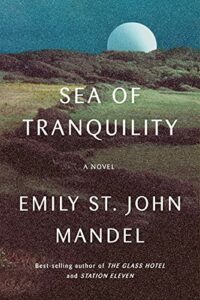
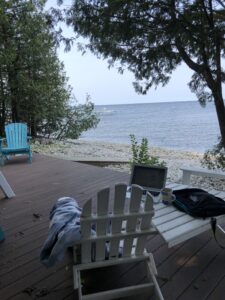
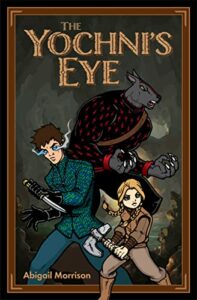
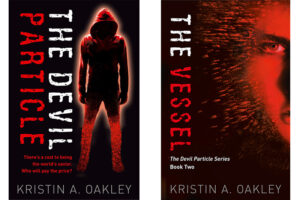
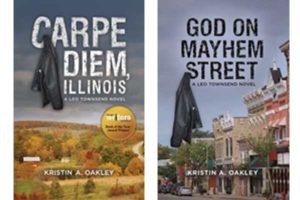

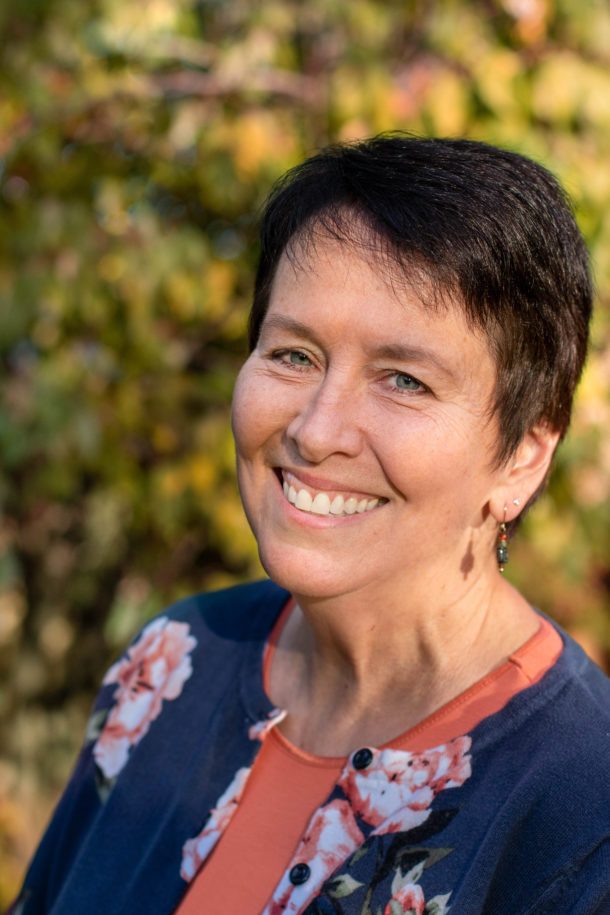
One of my favorite books, too.
It does give enlightenment and hope for the word to continue in a better path.
Why, shows like The Last Survivor are destructive and encourages the wrong behavior
in order to progress in a healthy community/ society.
Hope you are doing well.
Hi Mary,
I’m so glad you like “Humankind; A Hopeful History” too! I’m incredibly busy working on this new series but having lots of fun with it, too. How have you been?
Kristin